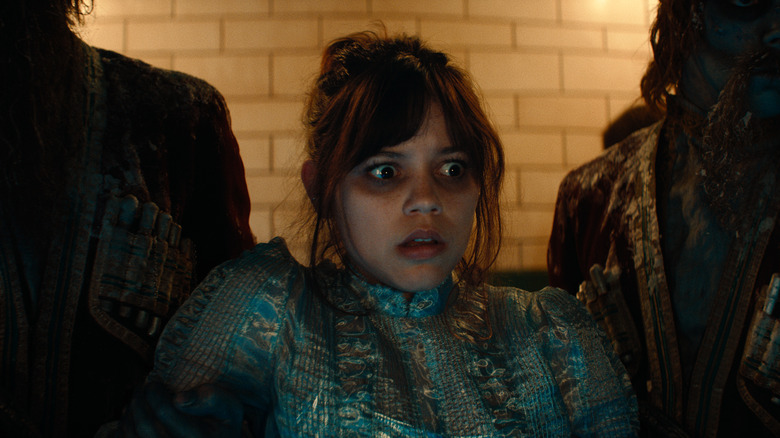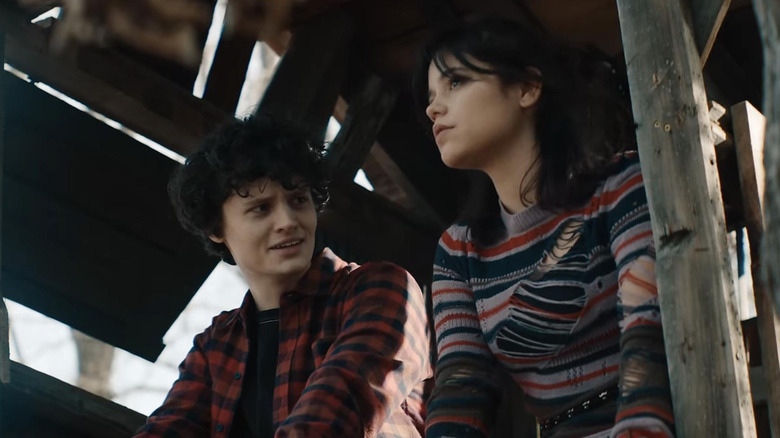Beetlejuice 2’s Big Jeremy Twist Explained
The following story contains major spoilers for “Beetlejuice Beetlejuice.”
“Beetlejuice Beetlejuice,” the long-awaited sequel, is finally here, bringing back one of the most beloved despicable creeps that director Tim Burton has helped brought to life. The sequel is a fun time that feels like Burton getting his mojo back and returning to his gonzo, macabre, fun origins. It is not near as groundbreaking as the original, but there’s comfort in how little some things change in the sequel. One of the best things about “Beetlejuice Beetlejuice” is how the titular character does not change one bit from how we knew him in the first film. Even Winona Ryder’s Lydia is relatively the same as she was the ’80s. Still, there are enough new gags and surprises to make this feel fresh and entertaining — and even a bit touching, with a poignant story of outcasts that cannot grow up having to confront their own mortality.
Then there’s the best thing about the movie: A legitimately good and surprising twist that adds a different kind of evil to the story than the chaos of the bio-exorcist Betlegeuse. I’m talking, of course, about Astrid’s new love interest, Jeremy (Arthur Conti), being a killer ghost. There are hints throughout the movie as to the identity of the handsome hunky boy next door that Lydia’s daughter Astrid (Jenna Ortega) falls for after a bike crash meet-cute, like how he repeatedly wears the same clothes.
But Jeremy is not just a ghost, he is also a psychopath who killed his own family in a brutal way before falling to his death from a treehouse while evading the cops. It’s a great twist, and one that feels like coming straight out of the “Beetlejuice” cartoon, which offered short and sweet episodes where Lydia and Beetlejuice got into bizarre adventures with supernatural creatures.
Beetlejuice Beetlejuice contains a ghostly surprise
At a press event attended by /Film’s Jacob Hall, director Tim Burton took questions from journalists about “Beetlejuice Beetlejuice,” and spoke of the movie being about toxic relationships.
“There was a lot of personal elements for me about that,” Burton said. “It’s [something] only time can show you in your own experience in life. I couldn’t have made this back in [1988] because I didn’t know anything. Now I feel things, after 30 years of going through a bunch of good and bad, ups and downs.”
This is how “Beetlejuice Beetlejuice” became a very personal film for Burton, as the sequel takes on deeper subjects than the first film and becomes about relationships. That theme does not just involve Astrid and her psychopathic killer ghost, but also how Lydia herself is dealing with a toxic relationship with her TV producer Rory (Justin Theroux), who is actually a massive liar, cheat, and gold digger (he preyed on her while in grief therapy after the death of her first husband) and sought to become her manager, and eventually her husband. It’s the most poignant aspect of “Beetlejuice Beetlejuice,” and the best justification for bringing these characters back after so many years.
A few of /Film’s editors spoke more about the movie on today’s episode of the /Film Daily podcast, which contains interviews with several of the film’s cast members. Check it out below:
You can subscribe to /Film Daily on Apple Podcasts, Overcast, Spotify, or wherever you get your podcasts, and send your feedback, questions, comments, concerns, and mailbag topics to us at bpearson@slashfilm.com. Please leave your name and general geographic location in case we mention your e-mail on the air.
















Post Comment